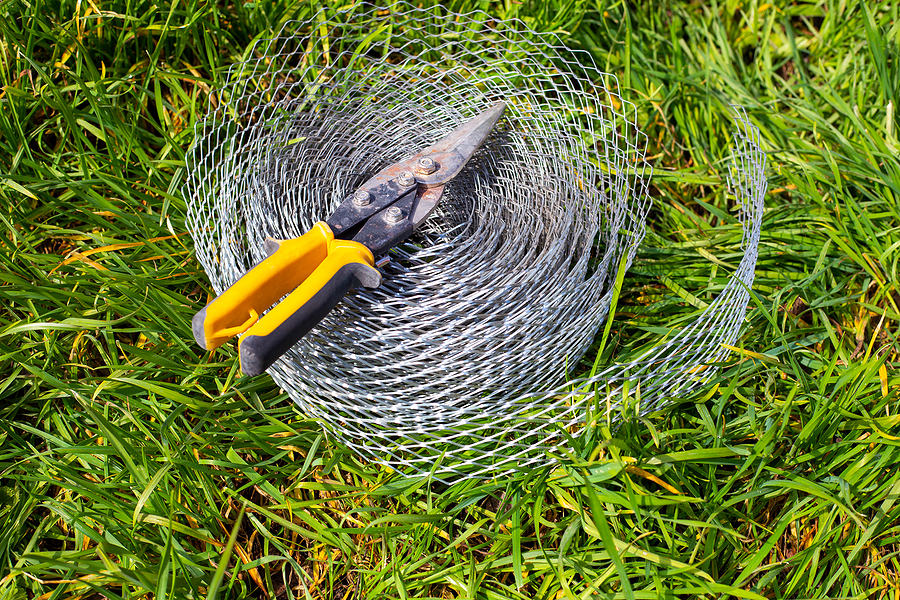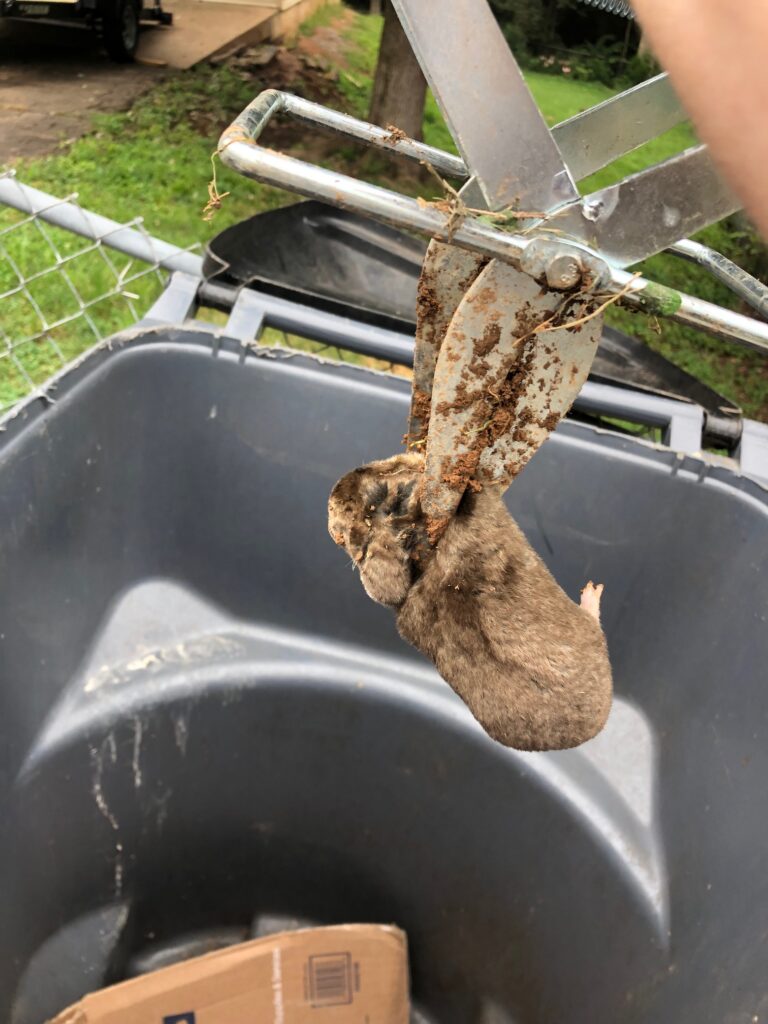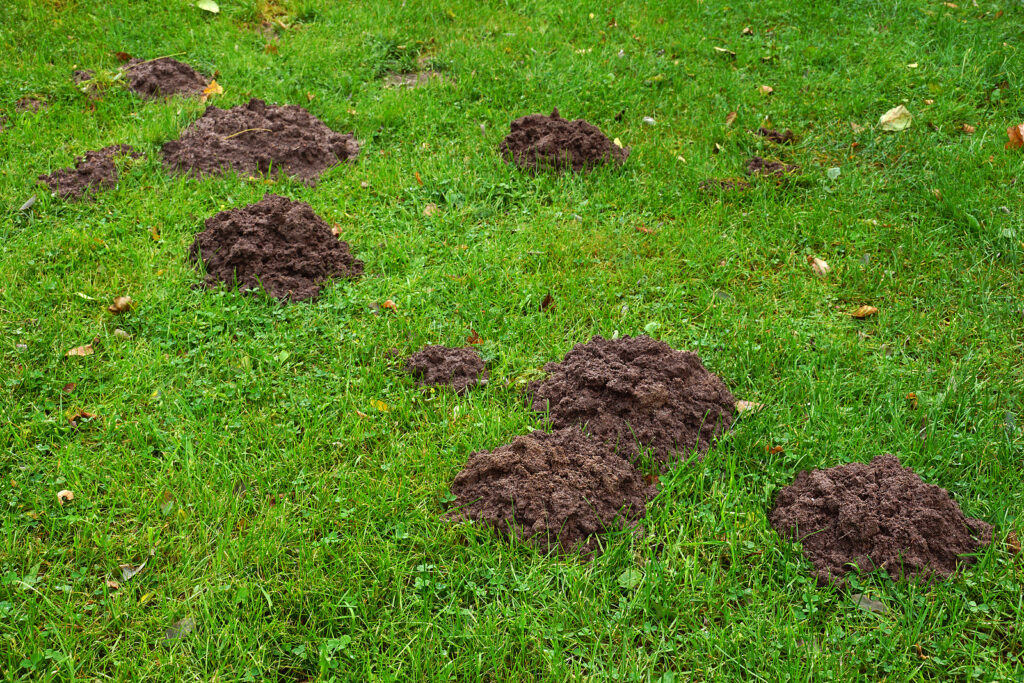Is your once pristine lawn starting to resemble a mini mountain range? If you’ve noticed small mounds of soil popping up in your yard, you’ve likely got a mole problem. Molehills can be a nuisance for homeowners, gardeners, and landscaping enthusiasts alike. These unsightly heaps not only ruin the aesthetic appeal of your lawn but can also cause damage to your plants and turf. In this blog post, we’ll explore everything you need to know about molehills, from identifying them to effectively managing and preventing these pesky invaders.

Identifying Molehills
Before tackling the problem, it’s essential to confirm that what you’re dealing with are indeed molehills. These mounds are typically circular or oval-shaped and composed of loose, fresh soil. They can range in size but are usually about 6-8 inches in diameter and about 2 inches high. By recognizing these signs, you’ll be better equipped to spot mole activity in your yard and take appropriate action. Here’s what to look for:
- Distinguishing Features: Molehills are characterized by the fine, crumbly texture of the soil. Unlike ant hills or gopher mounds, molehills lack visible entrance holes.
- Location: Moles prefer areas with moist, loamy soil that’s rich in insects and grubs. You’ll often find molehills in well-irrigated lawns, garden beds, and around the base of trees.
- Seasonality: Moles are most active during spring and fall when the soil is easy to dig through. Keep an eye out for new mounds during these seasons.
Mole Behavior
Understanding why moles create molehills can help you manage them more effectively. Moles are solitary, insectivorous animals that spend most of their lives underground. They dig extensive tunnel systems in search of food, primarily earthworms, and insects. By learning about mole behavior, you can better anticipate their movements and devise strategies to keep them at bay.
- Feeding Tunnels: Moles create shallow, temporary tunnels near the surface while hunting for food. The removed soil is pushed up to form molehills.
- Living Chambers: Deeper underground, moles construct more permanent tunnels and living chambers. These networks can cover large areas and intersect with other moles’ territories.
- Activity Patterns: Moles are most active during early morning and late evening. Their digging can be sporadic, leading to the sudden appearance of multiple molehills overnight.
The Impact of Yard Mole Damage
Molehills might seem like minor annoyances, but they can have significant implications for your lawn and garden. Understanding the potential harm caused by molehills underscores the importance of timely and effective management. Here are some ways in which mole activity can negatively affect your outdoor spaces:
- Turf Damage: The constant digging and tunneling can disrupt the grass roots, leading to brown patches and uneven surfaces. This can make mowing difficult and create tripping hazards.
- Plant Stress: Moles often displace soil around plant roots while tunneling, causing stress to your plants. This can result in stunted growth or even plant death if left unchecked.
- Secondary Pests: Mole tunnels can provide easy access for other pests like voles and mice, which may use the tunnels to reach plant roots and bulbs, causing additional damage.
Yard Mole Controls and Prevention
Managing molehills requires a combination of strategies to deter moles and restore your lawn’s appearance. By implementing these management techniques, you can reduce mole activity and minimize the impact on your lawn. Here are some practical tips to help you tackle the problem:
- Natural Repellents: Planting mole-repellent plants like marigolds, daffodils, and castor beans can help deter moles from your garden. Castor oil-based sprays are also effective in repelling moles without harming them.
- Physical Barriers: Installing hardware cloth or wire mesh around garden beds and lawn perimeters can prevent moles from entering specific areas. Ensure the barriers extend at least 12 inches below the soil surface to block their tunnels.
- Traps and Baits: While not always humane, trapping and baiting are options for severe infestations. Consult a professional pest control service to ensure these methods are used safely and effectively.
Restoring Your Lawn After a Mole Infestation
Once you’ve managed to control the mole population, it’s time to repair the damage they’ve caused. With these restorative measures, your lawn will be back to its lush, green state in no time. Here are some steps to help restore your lawn to its former glory:
- Leveling Molehills: Use a rake to flatten the molehills, redistributing the soil evenly across the affected areas. This will create a smoother surface and prevent further damage during mowing.
- Reseeding and Sodding: Reseed any bare patches with high-quality grass seed, ensuring good soil-to-seed contact for optimal germination. For larger damaged areas, consider laying new sod for quicker results.
- Aeration and Fertilization: Regular lawn aeration can help improve soil structure and promote healthy root growth. Follow up with a balanced fertilizer to provide essential nutrients for your recovering lawn.
Conclusion
Molehills can be a frustrating challenge for homeowners, gardeners, and landscaping enthusiasts. However, with a proactive approach and the right strategies, you can effectively manage mole activity and maintain a beautiful, healthy lawn. Remember to stay vigilant, implement preventive measures, and repair any damage promptly.
For those who prefer professional assistance, our yard mole removal service is here to help. Contact Smoky Wildlife Control at 615-610-0962 for safe and affordable animal removal services for yard moles in Nashville and Clarksville, Tennessee. Our experts can provide tailored solutions to keep your lawn mole-free and looking its best.
Related Posts:
Moles in Your Garden: Villain or Victim?
Best Solutions for a Yard Mole Problem
What is Tunneling and Digging Under My Lawn?





